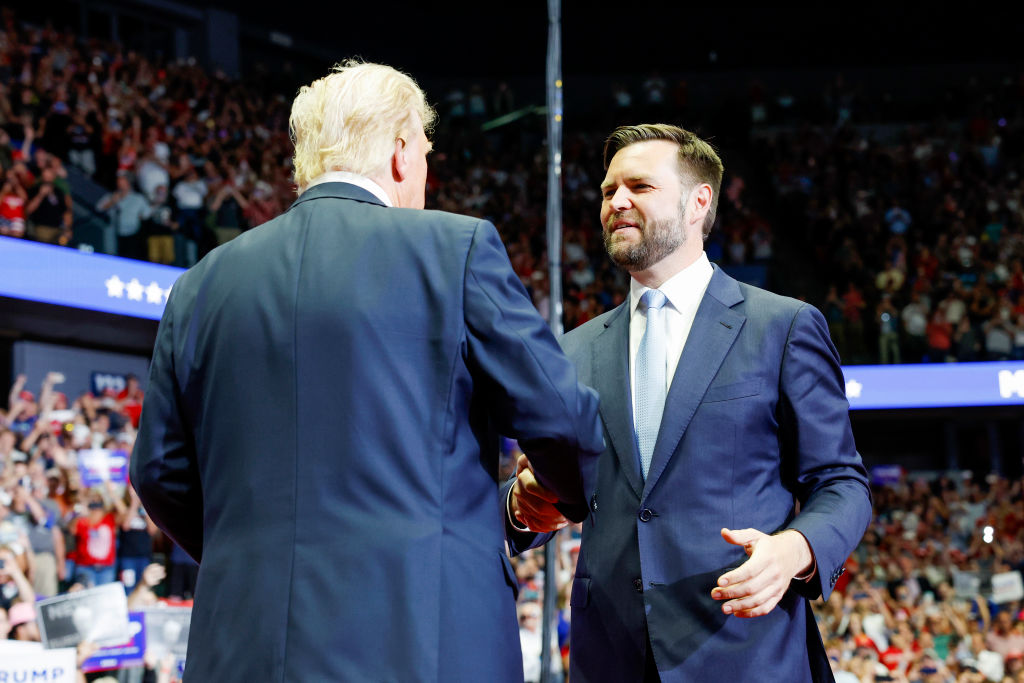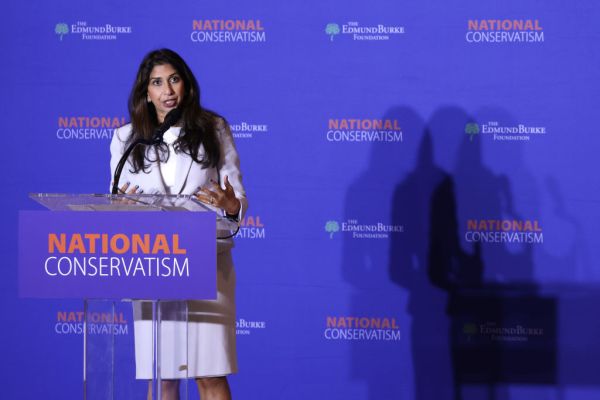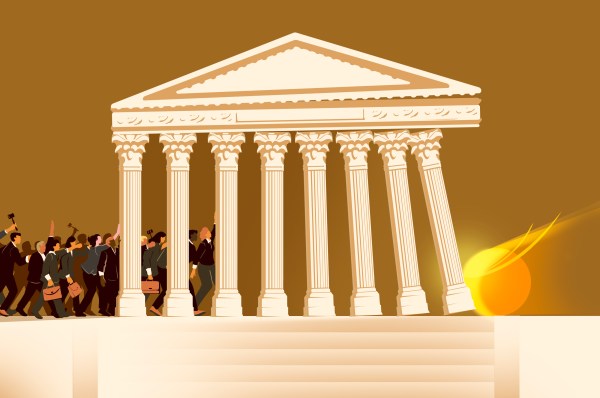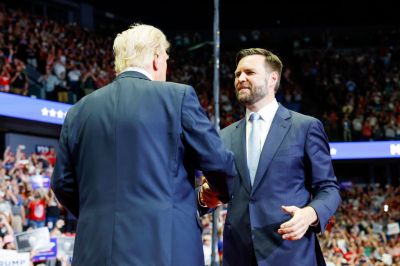Who is an “ultraconservative”? Having spent most of my career leading conservative organizations, I couldn’t begin to offer you a coherent definition. Neither, it seems, can anyone else.
For example, news outlets and political opponents are labeling Sen. J.D. Vance, Donald Trump’s newly minted running mate, as “ultraconservative.” Yet his views on federal spending, entitlement reform, tax reform, and labor policy are far to the left of the typical traditional Republican stance. And Vance is one of several “ultraconservative Republicans” opposed to aid for Ukraine.
These are hardly the only promiscuous uses of the term. Last month, Sen. Dick Durbin and much of the media claimed an “ultraconservative” majority on the Supreme Court is advancing a reactionary agenda and ripping up the Constitution, all the while doing the bidding of Donald Trump. But he ignores that the same justices have affirmed gun-control laws, tossed out a legal challenge to abortion pills, and rebuffed Trump’s demand for “complete and total immunity” from criminal prosecution.
What about the former president himself? While it’s uncommon for news outlets to apply the label to the ideologically mercurial Trump, critics often blast his allies and policies as “ultraconservative”—except when Trump is describing same-sex marriage as a “settled” issue, watering down the anti-abortion plank of the Republican platform, or decrying past military interventions in Iraq and Afghanistan launched by the Bush-Cheney administration (which was, of course, labeled “ultraconservative” back in the day).
Moreover, a Trump-endorsed primary challenger recently defeated Virginia Rep. Bob Good, head of the “ultraconservative” House Freedom Caucus. As for Trump’s right-wingman, Steve Bannon, he and the organizations he runs are frequently labeled “ultraconservative.” That’s hard to square with Bannon’s advocacy of more federal spending on infrastructure, income tax hikes on upper-income Americans, and tariff tax hikes on everyone else.
And what survey of political nomenclature would be complete without consulting Wikipedia? Its entry suggests ultraconservatives “typically rely” on appeals to “populism” while also adopting “neoliberalism” as their “primary economic ideology.” This formulation is absurd. In policy terms, populism and neoliberalism are opposites.
I don’t deny that the American right encompasses a wide range of voices, views, and institutions. We need terms to define and discuss them. The problem with such labels as “ultraconservative” and its cousin “archconservative” is that they describe variations of intensity or consistency. Some people are only slightly conservative. Others are very (ultra) conservative. The rest lay somewhere in between.
It’s a flawed model. The key differences among conservatives aren’t in degree. They’re in kind.
In the summer of 2022, a group of right-leaning nationalists and populists released a document titled “National Conservatism: A Statement of Principles.” In 10 paragraphs, the several-dozen signatories summarized their views on such important issues as national sovereignty, immigration, free enterprise, industrial policy, foreign policy, family stability, and the proper relationship of church and state.
“We see the tradition of independent, self-governed nations as the foundation for restoring a proper public orientation toward patriotism and courage, honor and loyalty, religion and wisdom, congregation and family, man and woman, the sabbath and the sacred, and reason and justice,” the self-styled NatCons wrote.
A year ago this month, a rival group of several dozen signatories—including Jonah Goldberg, Kevin Williamson, and other Dispatch writers—released “Freedom Conservatism: A Statement of Principles.” Too many people on the left and right, they wrote, “reject the distinctive creed that made America great: that individual liberty is essential to the moral and physical strength of the nation.”
The FreeCon statement’s 10 paragraphs addressed most of the same issues, agreeing with the NatCons in some areas while drawing sharp contrasts in others. For example, the NatCon statement offered tepid support for American federalism, describing it as “a delegation of power” to “subdivisions of the nation” and stating that in communities where “law and justice have been manifestly corrupted, or in which lawlessness, immorality, and dissolution reign, national government must intervene energetically to restore order.” In their statement, FreeCons flipped this conception on its head—it is the national government to which limited powers are delegated—and argued that “much of the discord in America today comes from the fact that too many decisions are made for us by centralized authorities.”
NatCons blame “globalized markets” for despoiling America. FreeCons extol the capacity for freer trade to raise our standard of living. NatCons want America’s public life to be “rooted in Christianity,” while FreeCons emphasize pluralism and freedom of conscience. NatCons call for a “Cold War-type” program of federal spending on research and development. FreeCons place a higher priority on fiscal restraint, naming our “skyrocketing federal debt” a “threat to the future prosperity, liberty, and happiness of Americans.”
As one of the organizers of the FreeCon statement, I make no claim of neutrality here. Still, I credit the NatCons for offering a clear conception of what they believe American conservatism ought to be—and for giving it a useful name. I also won’t claim that national conservatism and freedom conservatism are the only alternatives. By all means, let a hundred crimson flowers bloom.
But first things first. Let’s stop pretending the robust debate on the American right is between ultra- or archconservatives on one side and moderates on the other. It’s more complicated—and interesting—than that. What about passionate pro-lifers who oppose cuts to Social Security and Medicare? Or gay conservatives who favor increased military aid to Israel? Or critics of the administrative state who favor returning teacher-led prayer to public schools? Or anti-DEI activists who think big corporations are undertaxed?
By definition, conservatives seek to conserve. When we differ, it’s usually because we disagree about what most needs conserving at present. NatCons say it’s “the idea of the nation.” FreeCons say it’s “individual liberty.” I’m all for hashing it out —and for ditching the silly terms “ultraconservative” and “archconservative,” now and forever.






Please note that we at The Dispatch hold ourselves, our work, and our commenters to a higher standard than other places on the internet. We welcome comments that foster genuine debate or discussion—including comments critical of us or our work—but responses that include ad hominem attacks on fellow Dispatch members or are intended to stoke fear and anger may be moderated.
With your membership, you only have the ability to comment on The Morning Dispatch articles. Consider upgrading to join the conversation everywhere.